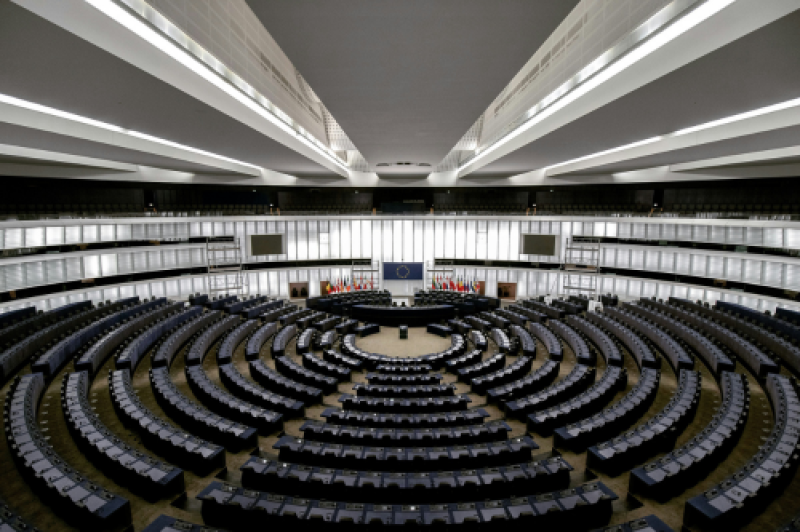- Yunus Urges Voters to Shape a ‘New Bangladesh’ |
- Bangladesh Polls: Campaign Ends as Voters Weigh Pledges |
- Bangladesh Heads to First Gen Z-Driven Competitive Poll |
- EC Lifts Mobile Phone Ban, Bars Photos Inside Booths |
- Youth participation vital to BD’s democratic future: C’wealth Group |
A (E)U-turn is possible

MEPs decide which laws will apply across the European Union, from environmental regulation to migration to anti-corruption measures. Photo- Frederic Köberl-Unsplash
In roughly a week, the European Parliament elections kick off, and citizens of the EU’s 27 member states will elect Members of the European Parliament (MEPs) that will shape European legislation for the next five years. The elections come as the EU faces global and internal challenges like Russia’s ongoing war against Ukraine, the climate crisis, or the erosion of democracy in some of its Member States. The European Parliament has also been involved in multiple undue influence scandals. In late 2022, news of the scandal known as Qatargate broke, in which MEPs allegedly took money from Qatar, Morocco and Mauritania in exchange for political influence. Recent allegations accused other MEPs of taking money from Russia to spread pro-Kremlin propaganda.
Last year, MEPs had the chance to improve internal rules to close loopholes in the Parliament’s rulebook which allowed MEPs to engage in side activities, whether paid or unpaid. Unfortunately, Eurodeputies voted against almost all provisions to make the European Parliament more ethical, but at least adopted the mandatory publication of lobbying meetings for all its members and their assistants.
If EU decision-making isn’t protected from undue influence, crucial legislation such as addressing climate risks may be watered down or captured by private interests seeking to derail it. This is why we call on the newly elected MEPs, to close those loopholes and harmonise lobbying regulations across the EU. Legal loopholes concerning opaque campaign funds pose a risk to the election process itself. A recent investigation by Follow the Money, which used in part our Integrity Watch data, revealed that EU political parties received almost a billion euros in donations between 2019 and 2022, 70 per cent of which was received from undisclosed donors.
We have called for addressing this opacity by closing six loopholes across 27 national laws. A step forward for the new parliament would be to retain its recommended amendments to the proposed Anti-Corruption Directive, setting higher standards for political finance, including mandatory reporting, publication, audits, and sanctions for transparency breaches. Paradoxically, the same MEPs to be elected under this veil of secrecy will have the power to shed light on money in politics.
In the upcoming term, the EU must use all the available tools to safeguard its core values, democracy and the rule of law. In recent years, some EU member states have also taken alarming strides to undo their own democracies. Hungary has long stood out as systemically undermining its rule of law. Meanwhile, media freedom continues to be eroded in Greece, while Slovakia has followed a dangerous path democratic backsliding, seen in amendments to the Criminal Code potentially shortening the statute of limitations for criminal offenses, dismantling of the Special Prosecutor's Office, personnel changes in the Judicial Council, and reduced protections for whistleblowers. With civic space increasingly under threat, harming civil society’s role in exposing corruption, it must protect civil society and introduce a civic package to ensure civil society organisations have the support and funding needed to hold power to account.
The EU needs to step up its fight against dirty money that enables corruption and organised crime. It should also introduce a European Asset Registry, documenting wealth across Europe, and increase sanctions against corrupt individuals enabling Russia’s war of aggression.
These elections mark a critical juncture for the future of the European Parliament’s integrity. With their vote, European citizens will be holding MEPs accountable for their actions and bringing in new MEPs who will shape critical years in the EU’s history. Despite the outcome, we’ll continue fighting to ensure Parliament is more transparent and accountable, and that the EU acts decisively to raise standards against corruption. – Transparency International

